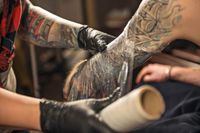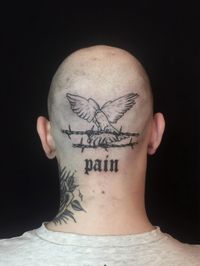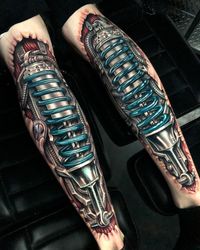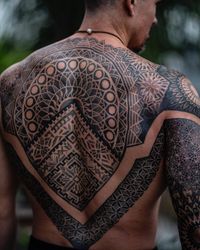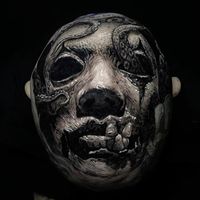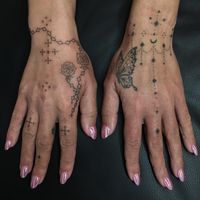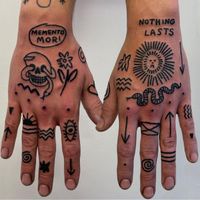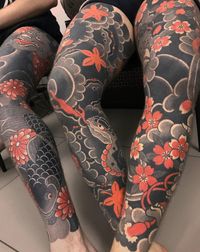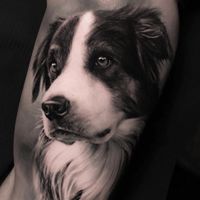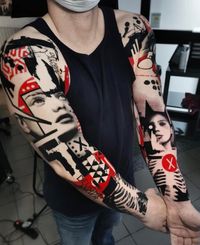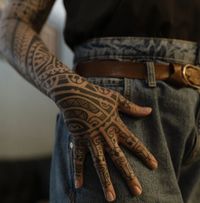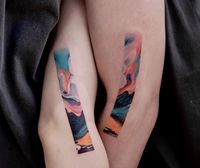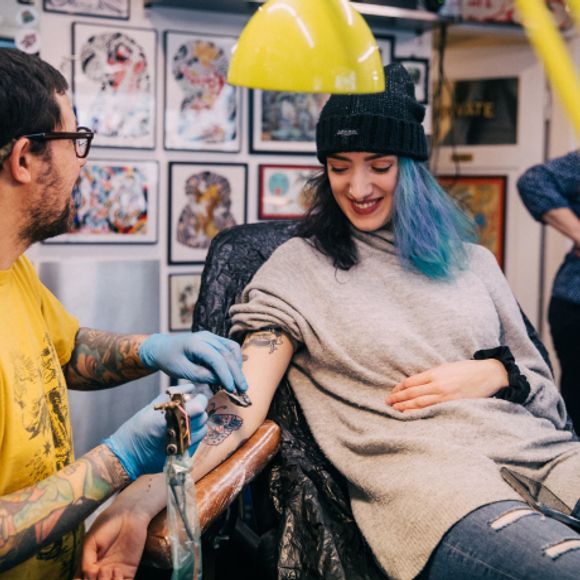
How to prepare for a tattoo appointment
Everything you’ll want to do to prepare for and make the most of your tattoo session.
When we think about preparing ourselves for a tattoo, we often think about the mental preparation involved. We prepare ourselves for the commitment, the permanence, and the needle itself. But there’s far more to preparing ourselves for a tattoo than what we go over in our minds. Physically preparing your body for your tattoo session is every bit as important. The better you prepare physically for your tattoo appointment, the less likely you are to find the experience uncomfortable, painful or otherwise complicated.
So, what are the key things you need to do before your tattoo appointment? In this handy guide, we’ll be taking you through everything you’ll want to prepare for—from what to eat to what to wear, and everything in between.
Keep yourself hydrated
Perhaps the most important (and simple) thing you can do to ensure you’re well-prepared for your tattoo appointment is to arrive hydrated. Keeping yourself hydrated when getting a tattoo is beneficial for multiple reasons. Not only do the body and brain handle pain better when they’re hydrated, but hydration also stimulates better blood flow, making the resulting tattoo more dynamic and precise. It’s advisable to start drinking plenty of water 24 hours before your appointment, but - as hydration also aids the healing process - the longer you stay hydrated, the easier the healing process will be—so keep drinking lots of water even after your session is over.
Eat a healthy meal beforehand
Similarly, eating a nutritious, healthy meal before your tattoo appointment will help you to have a better experience in the chair. Lots of fruits, vegetables, lean proteins, whole grains and healthy fats should help give you the energy you need to endure a tattoo session—which, after all, can be long, painful and generally quite a lot for a body to go through. You’ll also want to avoid consuming anything likely to make you jittery, like coffee, energy drinks, or highly processed foods. As you can imagine, it’s best to avoid the shakes when getting a permanent piece of artwork on your body, so do your tattoo artist a favour and arrive calm and well-fed.
It’s also a good idea to bring a snack or two with you to your session in case you feel faint—or just plain hungry!
Avoid drinking alcohol
It goes without saying that alcohol is best avoided both in the run-up to and after a tattoo appointment. Not only does it dehydrate you, but it also decreases your pain tolerance and increases the likelihood that you’ll feel faint, sick or uncomfortable during the healing process. Being hungover is bad at the best of times, but sitting hungover for a long tattoo session is definitely something you’ll want to avoid. So, if you’re thinking of using alcohol to boost your courage while getting tattooed—it might actually make the experience a whole lot harder for yourself, so try to go without.
Get a good night’s sleep
Rest is crucial for an enjoyable tattoo appointment. Being overtired can increase anxiety, pain and - most especially - will make it much harder to sit patiently through a long tattoo session. Try to get at least seven to eight hours of sleep the night before your appointment, and continue to sleep well through the healing stage. You might notice you feel especially tired following a tattoo appointment—this is totally normal. Your body has undergone a minor trauma, so it will want the extra rest in order to recover properly.
Prepare your skin
As mentioned above, hydrated skin is happy skin—and you don’t want to tattoo unhappy skin. That’s why it’s incredibly important to moisturise in the run-up to your appointment to ensure the area you’re tattooing isn’t dry, flaky or irritated.
While moisturiser helps to prepare the skin for tattooing, fake tan does the opposite. In order to achieve the very best tattoo, your artist will need to work on clean skin, so any fake tan in your chosen area will have to be removed before you can begin. It’s also advisable to stay out of the sun before and after your appointment, as tattooing on burnt skin can be very painful and tanning over a tattoo can increase the likelihood of the design fading.
Wear comfortable clothing
Tight, hot or itchy clothing is always something to avoid during a tattoo appointment. Whether you’re sitting for hours or minutes, it’s always best to be as comfortable as possible to ensure you get the best results. If possible, arrive for your appointment wearing loose, clean, breathable clothes (but bring an extra layer in case you get cold). It’s also useful to think about where you’re getting your tattoo when choosing what to wear. For example, if you’re getting a calf tattoo, that area should be easily accessible. Or, if you’re getting a rib cage tattoo, you probably won’t want to wear a bra home afterwards.
Skip the gym on the day of your session
While it might be tempting to burn away those pre-tattoo nerves in the gym, it’s actually preferable to avoid heavy training and exercise before your appointment. It’s more important for your body to be well-rested, relaxed and hydrated—plus tattooing sore or pulled muscles is, as you can probably imagine, not a lot of fun! So, allow yourself a day to rest and focus on getting a great night’s sleep instead.
Follow your aftercare instructions
A good tattoo artist will provide you with instructions on how to look after your tattoo in the weeks after your session. Make sure you follow these aftercare instructions carefully—they’ll help you to heal faster and are all there to help your tattoo stay as vibrant and detailed as the day you got it done, so they’re worth listening to. If you misplace your aftercare instructions or you find yourself in any doubt, we’ve compiled our own list of things you need to do to care for your new tattoo here.

